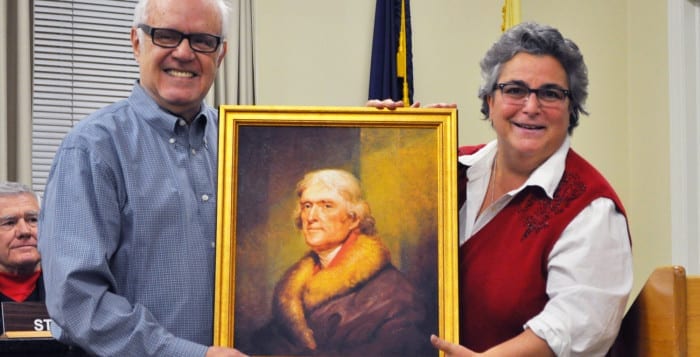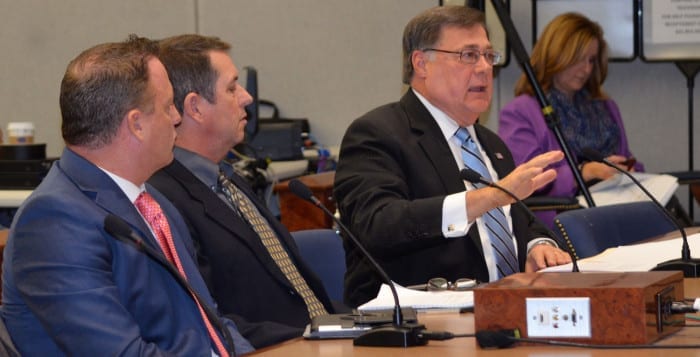This time, the batteries are included.
State legislation aiming to address fire safety for New York families was signed into law this week, requiring every smoke alarm sold be equipped with a nonremovable, nonreplaceable battery that powers the device for a minimum of 10 years. State Sen. John Flanagan (R-East Northport) heralded the new law he sponsored as a protective measure against house fires.
In a statement, the senator said the law would help ensure that smoke alarms are operational for a longer period of time and hopefully save lives. Since smoke alarms were first mandated in the state back in 1961, Flanagan said that deaths due to fire have been cut in half, but most deaths due to fire today happen in homes with either no smoke alarm or a nonfunctioning one. Under the new law, Flanagan said, homeowners can be protected from dangerous fires for a longer period of time without constant maintenance.
“Too many families in our state have suffered the loss of a loved one due to a fire emergency, and this new law is aimed at protecting New Yorkers from this pain,” Flanagan said. “The data is crystal clear in how essential smoke detectors are in saving lives.”
Over the operational life of the average smoke alarm, the new law could also potentially save homeowners money by eliminating the need for replacement batteries every six months, Flanagan said. After the 10-year operational time period of the device, a new smoke alarm device would need to be purchased as a replacement.
Firemen’s Association of the State of New York President Robert McConville said lawmakers, including Flanagan, have taken big steps to keep New York families safe.
“We would like to thank State Sen. John Flanagan for his leadership on this critical issue. Simply put, his efforts in passing this legislation will help save lives in New York State,” he said. “We’ve seen time and again that working smoke alarms can be the difference between life and death. Together, State Sen. Flanagan, Assemblyman Joseph Morelle (D-Irondequoit), and N.Y. Governor Andrew Cuomo (D) have succeeded in making New York a safer place to live.”
The new law will go into effect in April 2019, once an agreed-upon chapter amendment between the Governor, the Senate and the Assembly is approved.
It will not apply to devices which have been ordered or that are in inventory when the law goes into effect. It will not impact devices that are powered through electrical systems, fire alarm systems with smoke alarms, fire alarm devices that connect to a panel or other devices with low-power radio frequency wireless communication signal.
Additionally, the upcoming amendment will provide the state fire administrator, through its regulatory process, the ability to designate other devices that are exempt from the legislation.
“It is critical that all homeowners who do purchase these devices in our state are able to trust them for a full decade,” Flanagan said. “The goal is to help New Yorkers protect their homes and their families, and this legislation is a great step in that effort.”
















